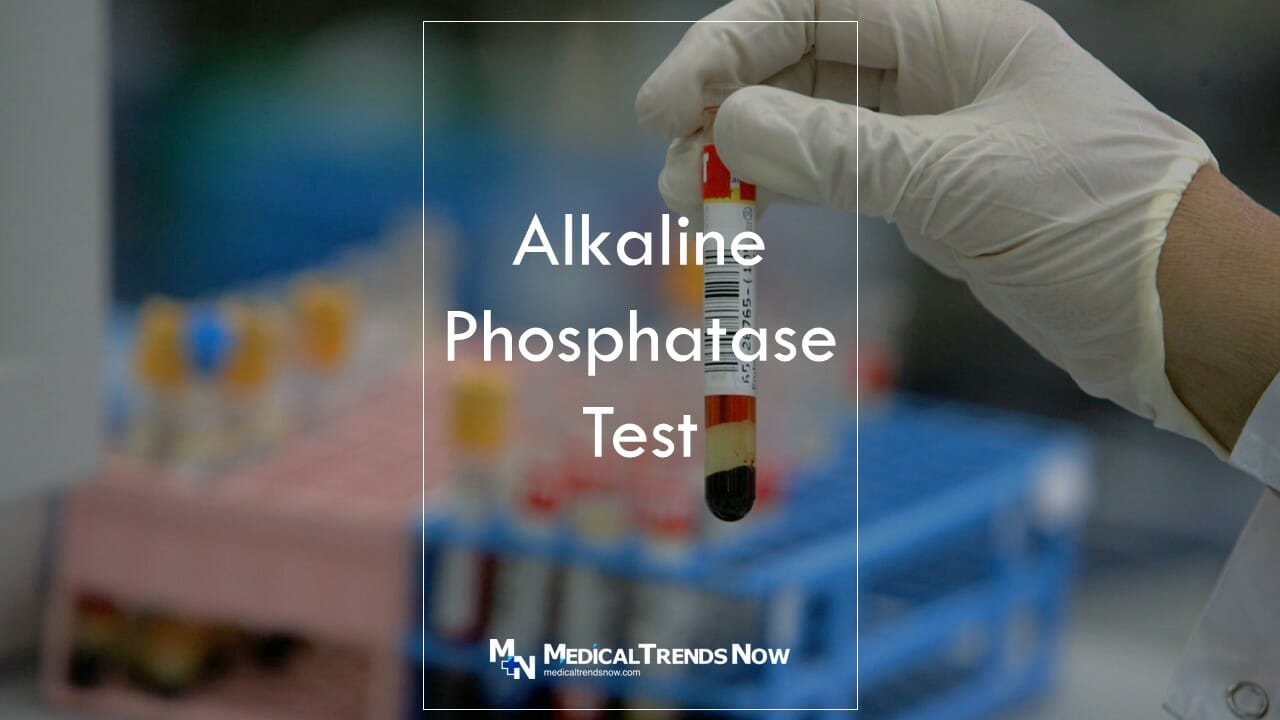Table of Contents
An alkaline phosphatase test is used to measure the level of alkaline phosphatase in the blood. Alkaline phosphatase is an enzyme that is found in various tissues throughout the body, including the liver, bone, and placenta. The level of alkaline phosphatase in the blood can be affected by various conditions, such as liver disease, bone cancer, and pregnancy.
Alkaline Phosphatase is a protein that helps in the breakdown of bone and cartilage. It also plays a role in the formation of teeth, bones, and other tissues.
In this article, we will discuss the basics of the alkaline phosphatase test, from the low, normal range to a high level.
What Is Alkaline Phosphatase And What Does It Do?
Alkaline Phosphatase is an enzyme that catalyzes the chemical reaction of alkaline phosphates with phosphate acids to form orthophosphoric and diphosphoric acids. This enzyme is important for the maintenance of a normal pH balance in body tissues and fluids.
In addition, Alkaline Phosphatase is involved in the degradation of some cellular proteins.
This is important because it allows cells to use the phosphorus they contain more efficiently. Alkaline Phosphatase is also important in the body’s defense against infection.

Why Is Alkaline Phosphatase Important?
Alkaline Phosphatase is an enzyme that helps to break down phosphorus-containing compounds and is thus important for cell metabolism. Phosphorus is essential for the growth and function of cells, and too much can lead to health problems. Alkaline Phosphatase helps the body to rid itself of this excess phosphorus by breaking it down into other substances.
How Is Alkaline Phosphatase Made?
Alkaline phosphatase is made in the liver and other specialized cells in the body. It is encoded by the ALP gene. The ALP gene is located on the long arm of chromosome 8.
Because it is largely present in your liver, ALP is frequently referred to as a liver enzyme. It does, however, also exist in the following locations:
- Bile duct
- Digestive Tract
- Skeleton
- Kidneys
- Placenta
It is a type of enzyme that helps to break down phosphate molecules. Phosphates are important for many different processes in the body, including DNA synthesis and protein synthesis.

What Is The Alkaline Phosphatase Test?
The amount of alkaline phosphatase (ALP) in your blood is determined by an alkaline phosphatase test. Although ALP is present throughout your body, your liver and bones are the two primary places where it comes from. Although an alkaline phosphatase test by itself cannot diagnose a diagnosis, high levels of ALP may indicate liver disease or some bone problems.
Alkaline phosphatase (ALP) blood tests come in two primary categories: the more popular general alkaline phosphatase test and the ALP isoenzyme test.
A blood test called a comprehensive metabolic panel (CMP), and a liver panel typically include a generic ALP test.
An ALP isoenzyme test can distinguish between different forms of Alkaline Phosphatase based on where they originated in your body, as opposed to an alkaline phosphatase test, which only checks the level of ALP in your blood.
If you had an abnormal ALP level on a previous alkaline phosphatase test, your doctor could have you take an ALP isoenzyme test as a follow-up. Although an isoenzyme test can offer more specific information, it is more expensive and technically difficult, and some laboratories might not offer it.

Why Is An Alkaline Phosphatase Test Needed?
An alkaline phosphatase test can be done to look for abnormalities or diseases in the body that may be caused by an imbalance of this molecule.
An alkaline phosphatase (ALP) blood test may be requested by your healthcare provider to help screen for, monitor, or help diagnose liver and biliary diseases, bone abnormalities, and other medical conditions.
Screening entails looking for any medical problems before you notice any symptoms. A complete metabolic panel (CMP) and liver panel frequently contain an alkaline phosphatase test. These panels are frequently used by healthcare professionals as part of a standard check-up to screen for a variety of potential health issues.
It is frequently ordered as part of a panel to monitor your condition and see if it is getting better, getting worse, or remaining the same with or without therapy.

Alkaline Phosphatase Low Level: What Does It Mean?
Alkaline phosphatase (ALP) levels that are unusually low are less frequent than levels that are excessive. It could be a sign of the following:
- Zinc deficiency
- Magnesium deficiency
- Malnutrition
- Hypothyroidism
- Rare hereditary diseases such as Wilson disease and hypophosphatasia
Alkaline Phosphatase High Level: What Does It Mean?
If your alkaline phosphatase levels are high, there could be a number of reasons. Alkaline phosphatase is a protein that is involved in the breakdown of phosphate minerals, which can lead to an increase in phosphate levels in the blood. Elevated alkaline phosphatase levels may also be a sign of liver, bone, or even kidney problems since these organs are responsible for processing and removing excess phosphorus from the body. If you exhibit symptoms that could point to a liver or bone issue, your doctor might order an alkaline phosphatase test to make a diagnosis.

The following conditions may be present in the liver if alkaline phosphatase levels are elevated:
Liver Cirrhosis
A late-stage liver condition called cirrhosis causes the liver to become irreversibly damaged when good liver tissue is replaced with scar tissue.
Hepatitis
The inflammation of the liver.
Pregnancy Cholestasis
A liver disease commonly develops during the latter stages of pregnancy.
Biliary Atresia
This is an uncommon disorder that develops when the ducts that convey bile from your liver to your gallbladder become blocked. Infants are affected by it.
Mononucleosis
This infectious infection occasionally results in liver edema.
Biliary stricture
The bile duct, which transports bile from the liver to the small intestine, becomes smaller or more congested in this illness.

The following conditions may be indicated by high bone alkaline phosphatase levels:
Bone Metastasis
This disease develops when cancerous cells from another part of your body spread to your bones.
Paget’s Disease / Osteitis Deformans
Paget’s Disease is a rare disorder that results in bone pain and soft-tissue swelling. Osteitis Deformans is a form of bone cancer that can cause deformity of the bones.
Osteogenic Sarcoma
Osteogenic sarcoma is a type of cancer that arises from tissues that make bone (osteoblasts). The cancer cells can grow and spread to other parts of the body, including the bones. Treatment for osteogenic sarcoma includes surgery to remove cancer and radiation therapy to kill the cancer cells.
Hyperthyroidism
Too much thyroid hormone is produced and released by your thyroid, which causes this illness.
Hyperparathyroidism
Hyperparathyroidism is a condition in which the parathyroid gland’s production of parathyroid hormone (PTH) is higher than normal. This can lead to a number of health problems, including bone density loss, kidney failure, and cardiac problems. There is no definitive cause for hyperparathyroidism, but it can be caused by a number of factors, including cancer, genetic disorders, and chemotherapy treatments. Hyperparathyroidism is treated with surgery to remove the overactive parathyroid gland or drugs that lower PTH levels.
Osteomalacia
Your bones may become more brittle as a result of this condition and may break more easily. The most common cause of its development is vitamin D deficiency.
Untreated Celiac Disease
Untreated celiac disease can lead to damage to the small intestine, which can cause problems such as anemia, diarrhea, and malnutrition. It can also lead to other medical conditions, such as osteoporosis and diabetes.

Signs and Symptoms of Liver-related Diseases:
- Jaundice
- Abdominal pain
- Nausea and vomiting
- Easy bruising
- Clay-colored stool
- Dark-colored urine
- Weight loss and loss of appetite
- Fatigue
- Edema
Signs and Symptoms of Bone-related Diseases:
- Joint or Bone pain
- Increased frequency of fractures in the bones
- Unusually enlarged bones
Alkaline Phosphatase High vs. Alkaline Phosphatase Low Level
When it comes to alkaline phosphatase levels, it is important to understand what high alkaline phosphatase and low levels may mean for your health. Alkaline phosphatase is an enzyme found in many tissues throughout the body, including the liver, bone, and kidney. This enzyme helps to regulate cell growth and metabolism.
High levels of alkaline phosphatase may be indicative of liver damage or disease, bone disorders, or kidney problems. Low levels of alkaline phosphatase may be due to malnutrition or certain medications. If you have concerns about your alkaline phosphatase levels, be sure to discuss them with your hepatologist or a gastroenterologist doctor.
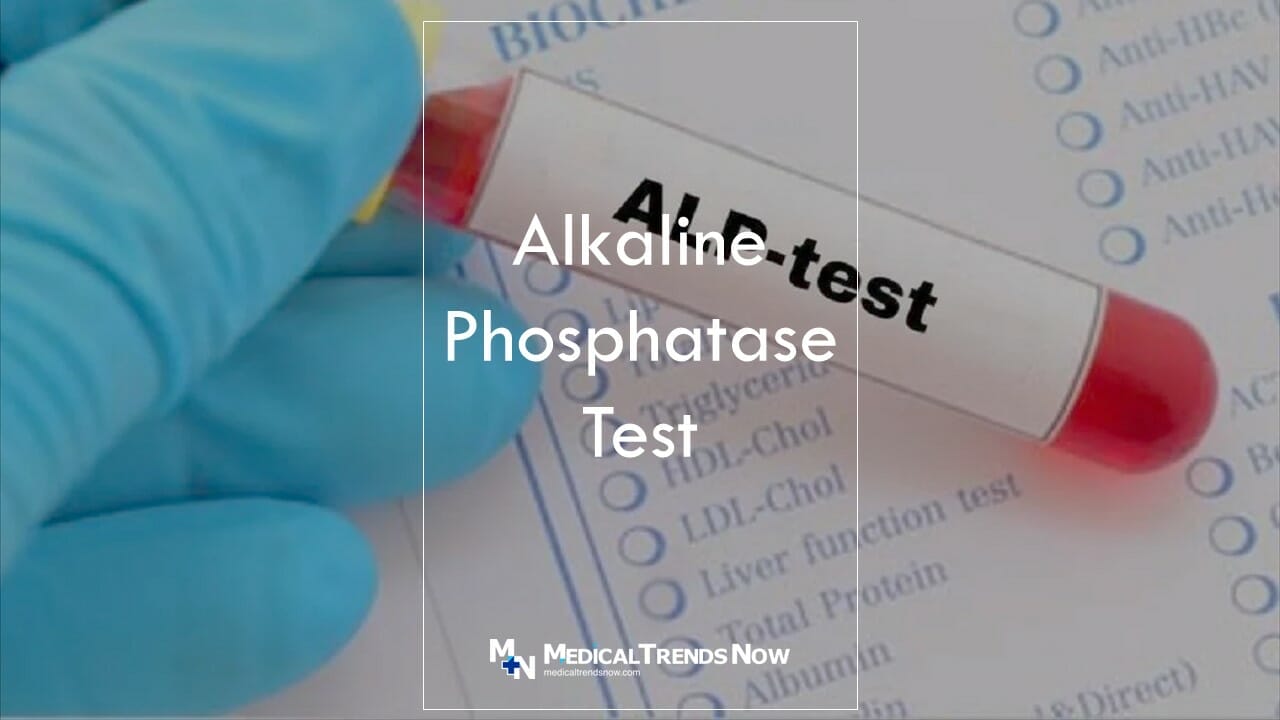
A Normal Range Alkaline Phosphatase Test Result
A normal range for alkaline phosphatase is 30 to 130 international units per liter (U/L). This means that if your test results show a level of alkaline phosphatase that is above or below this range, it could be an indication of a problem.
If your medical test results are outside of the normal range, it does not necessarily mean that you have a serious medical condition. However, it is important to follow up with your doctor to determine the cause of the abnormal results.
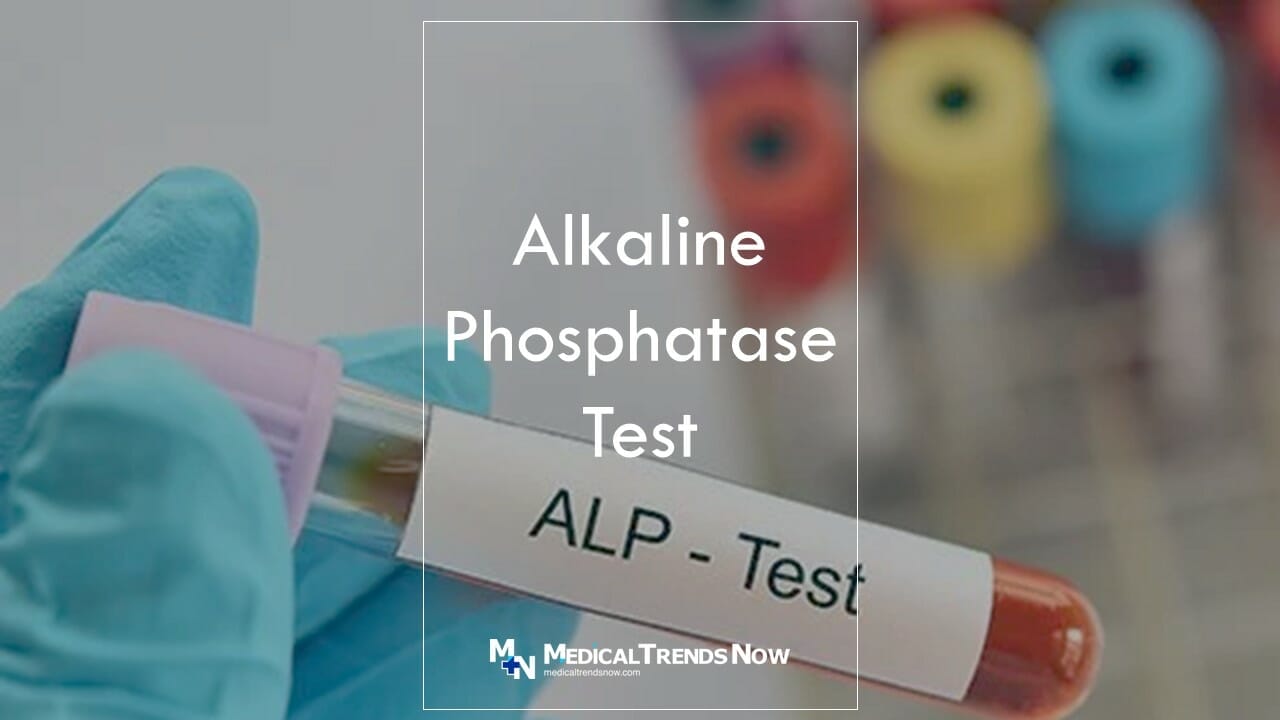
What Can I Do To Lower My Alkaline Phosphatase Levels?
There are a few things that you can do to lower your Alkaline Phosphatase levels.
First, make sure to eat a balanced diet and include foods that are high in antioxidants. This will help to protect your body from damage and keep your low levels of ALP in check.
Additionally, exercise regularly and maintain a healthy weight to help improve your overall health and decrease the risk of developing high ALP levels.
Finally, consult with a doctor for more specific advice on how to lower them.
Summarizing, the following can help lower your ALP levels:
- Eat a balanced diet low in sugar and saturated fats
- Exercise regularly
- Avoid excessive alcohol consumption
- Get plenty of good quality sleep
- Take supplements to support your health, such as vitamin D, calcium, and magnesium.
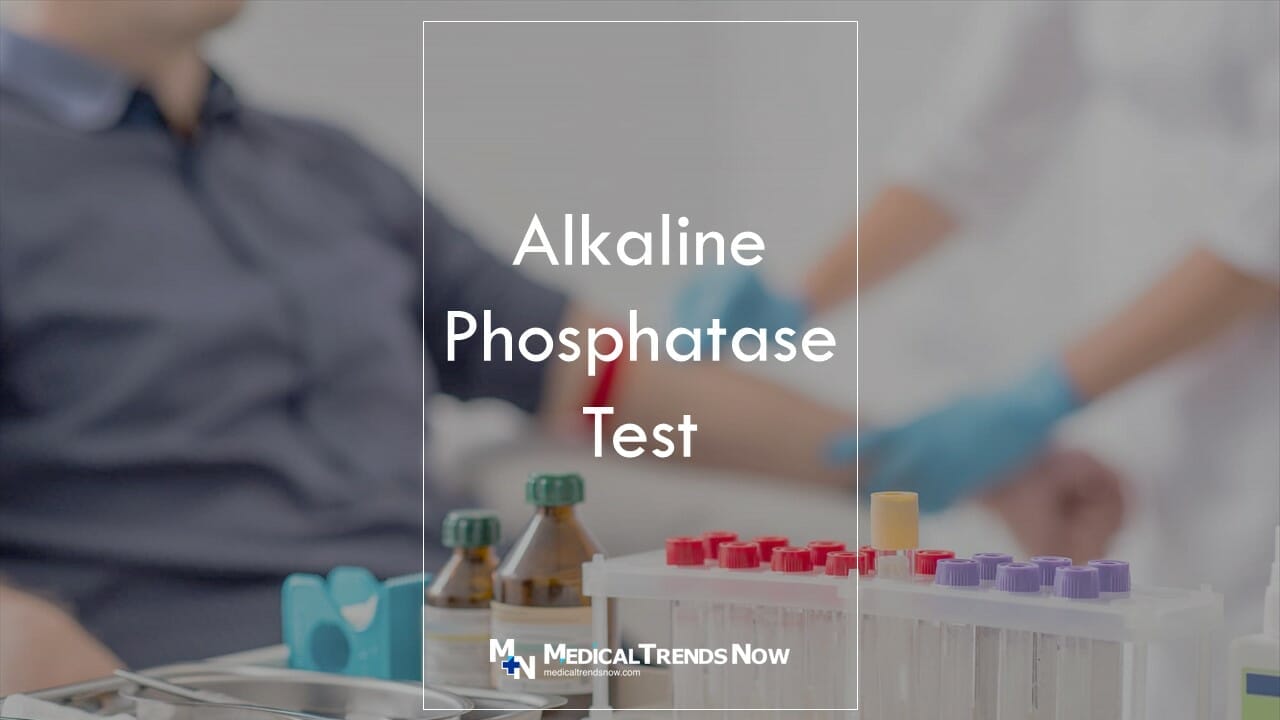
How to Prepare for the Test?
If your doctor orders an alkaline phosphatase test, you may be wondering how to prepare for it. Here are some tips:
- You should not eat or drink anything for at least four hours before the test. This includes water, coffee, tea, and juice.
-
If you are taking any medications, please let your doctor know in advance, as some medications can affect the results of the test.
-
You should avoid strenuous activity for at least 24 hours before the test, as this can also affect the results.
-
If you are a woman, you will need to wear a sanitary pad to prevent leakage during the test.

What Happens During Alkaline Phosphatase Test?
During the test, a small sample of blood will be taken from a vein in your arm. The test is done by taking a sample of blood from a vein in the arm. The arm is usually cleansed with an antiseptic before the needle is inserted. The needle is then connected to a tube, and the blood is drawn into the tube. The tube is then labeled and sent to a laboratory for analysis.
The sample will then be sent to a laboratory for analysis. The results of the test will be reported as either a high or low level of alkaline phosphatase in your blood.
The results of the test are reported as either high or low. A high level of alkaline phosphatase may be due to liver disease, bone disease, or muscle disease. A low level may be due to kidney disease or certain medications.
Takeaway: Alkaline Phosphatase Test Details
If you are experiencing signs or symptoms of high or low Alkaline Phosphatase levels, it is important to consult with a doctor. By following the tips above, you can help to address your type of ALP levels and improve your overall health.
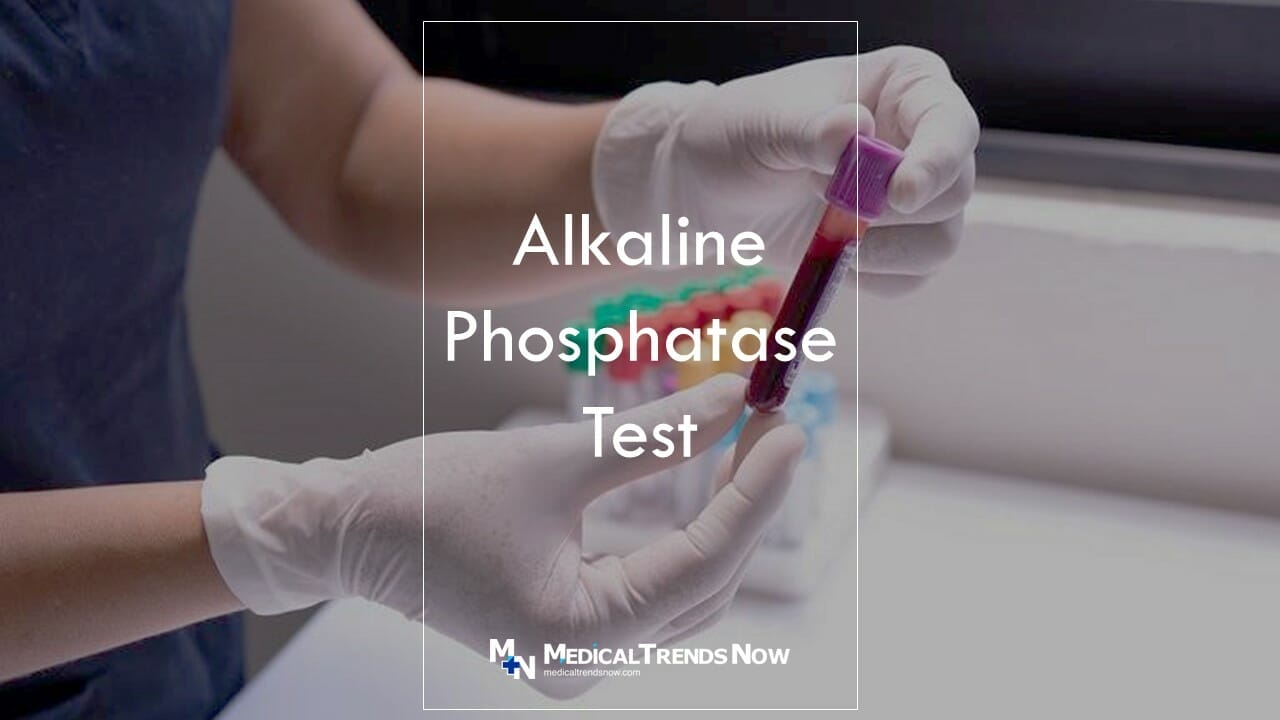
Resources: Alkaline Phosphatase Test Done
- ALP – blood test – Icahn School of Medicine at Mount Sinai
- Alkaline Phosphatase (ALP) – Cleveland Clinic
- Which Specialist Do I Need? Maybe a Doctor You Didn’t Know Existed – Yale Medicine
- Alkaline Phosphatase – StatPearls – NCBI Bookshelf
- Elevated Alkaline Phosphatase – Cancer Therapy Advisor
- ALP – blood test – UCSF Health
- Understanding Your Blood Tests – Sonora Quest Laboratories
- Liver function tests – Mayo Clinic
- Alkaline Phosphatase Test – Lab Tests Online-UK
- Low Alkaline Phosphatase (ALP) In Adult Population an Indicator of Zinc (Zn) and Magnesium (Mg) Deficiency – Food and Nutrition Journal
- Repeatedly low plasma alkaline phosphatase in a 56-year-old woman. A case of hypophosphatasia diagnosed in adulthood – National Library of Medicine
- Hours before alkaline phosphatase test – Alkaline Phosphatase (ALP): About This Test – MyHealth Alberta
- Blood Sample Alkaline Phosphatase (ALP) Test – Lab Tests Online-UK
- Alkaline phosphatase test measures what? Alkaline Phosphatase – Test Overview – Kaiser Permanente
- Abnormal levels of ALP – Alkaline Phosphatase (ALP) – Pathology Tests Explained
- High alkaline phosphatase levels, a study in 181 Thai adult hospitalized patients – BioMed Central
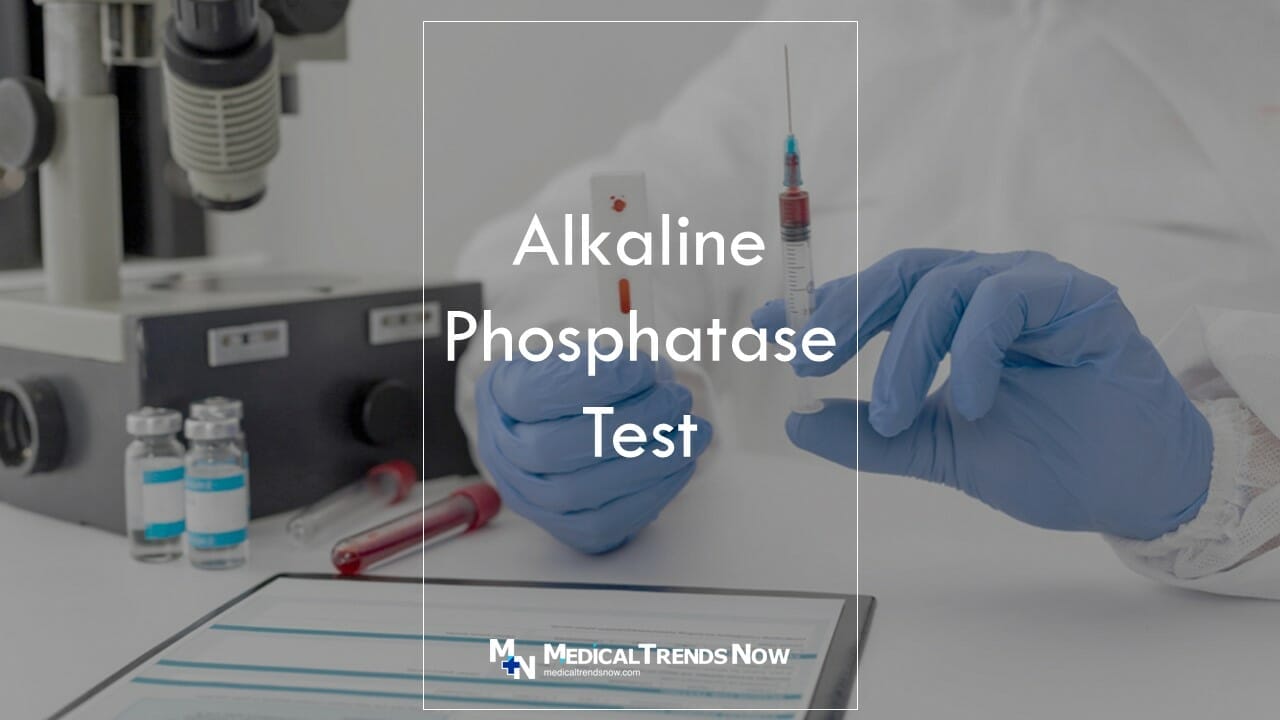
Disclaimer: Alkaline Phosphatase Test Results Mean
This website is intended to educate both members of the general public and those working in the medical field on the prevalence, causes, and methods for preventing, diagnosing, and treating diseases that affect people throughout their lives. This website’s content is provided solely for informational reasons and is not meant to serve as a substitute for the advice of a qualified medical practitioner.

